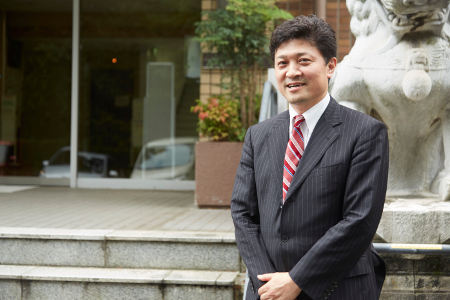
Full Text
簡体字 / 正體字 / English摘要:
本文的目的是探讨迎向第二任期的习近平政权对台政策的特徵,笔者将透过分析十九大前後公开的政策及实际推动的政策内容,再加上美国对台政策的因素,展望第二任期延续至2022年为止之习近平政权的对台政策。经过本文的考察,可以将有关习近平政权第二任期的对台政策特徵总结为以下三点。
第一,过去政权的延续性强烈,采取软性政策与硬性政策并进的“两手策略”。不过,软性政策具体化的〈惠台31条〉,由於具有吸收台湾技术及人才等优势,以利中国发展的一面,对台湾政府当局而言,这同等於让台湾更加依赖中国的“贫困化政策”,故而视其为警戒对象。另一方面,硬性政策则藉由政治施压,缩小台湾的国际活动空间,并增加在台湾周边的军机丶军舰活动。
第二,习近平政权虽承袭了“两手策略”,却仍欠缺应达成的明确目标。例如,软硬手策略具有相互抵消的效果。中国即便打出经济怀柔政策,若同时也强化军事施压,就会让台湾提高戒心。反之,中国就算扩大军事施压,若同时也强化经济怀柔政策,就会带给台湾“应该不会动武”的印象,以致削弱威吓效果。
第三,美国川普政权的对台政策逐渐成为了习近平政权对台政策的强力制约因素。美国至今也曾采取了亲台湾的政策,而中国对此则会做出强烈的反弹,可是这次川普政权还同时采取了提高关税与限制中国企业收买美国高科技产业等措施,在与中国经济的命脉息息相关的领域对中国施压,因此中国在台湾问题上对美国难以采取强硬的态度。
当中美之间总是不断相互制裁丶报复,落入关系恶化的恶性循环,所得到的结果,就是让台湾保有一定的活动空间。而且,由於中美关系的结构性转换和川普政权特有的不确定性,可以预见今後两岸关系向有利于中国的方向发展的可能性极低。在这样的情况下,正意味着专心致力於处理国内外诸课题的习近平政权,并没有将台湾问题置於高优先顺位,因此台湾海峡的现状仍然难以有剧烈的变化。中国推进的“两岸关系的和平发展”道路,今后应该会更加困难。
摘要:
本文的目的是探討迎向第二任期的習近平政權對台政策的特徵,筆者將透過分析十九大前後公開的政策及實際推動的政策內容,再加上美國對台政策的因素,展望第二任期延續至2022年為止之習近平政權的對台政策。經過本文的考察,可以將有關習近平政權第二任期的對台政策特徵總結為以下三點。
第一,過去政權的延續性強烈,採取軟性政策與硬性政策並進的「兩手策略」。不過,軟性政策具體化的〈惠台31條〉,由於具有吸收台灣技術及人才等優勢,以利中國發展的一面,對台灣政府當局而言,這同等於讓台灣更加依賴中國的「貧困化政策」,故而視其為警戒對象。另一方面,硬性政策則藉由政治施壓,縮小台灣的國際活動空間,並增加在台灣周邊的軍機、軍艦活動。
第二,習近平政權雖承襲了「兩手策略」,卻仍欠缺應達成的明確目標。例如,軟硬手策略具有相互抵消的效果。中國即便打出經濟懷柔政策,若同時也強化軍事施壓,就會讓台灣提高戒心。反之,中國就算擴大軍事施壓,若同時也強化經濟懷柔政策,就會帶給台灣「應該不會動武」的印象,以致削弱威嚇效果。
第三,美國川普政權的對台政策逐漸成為了習近平政權對台政策的強力制約因素。美國至今也曾採取了親台灣的政策,而中國對此則會做出強烈的反彈,可是這次川普政權還同時採取了提高關稅與限制中國企業收買美國高科技產業等措施,在與中國經濟的命脈息息相關的領域對中國施壓,因此中國在台灣問題上對美國難以採取強硬的態度。
當中美之間總是不斷相互制裁、報復,落入關係惡化的惡性循環,所得到的結果,就是讓台灣保有一定的活動空間。而且,由於中美關係的結構性轉換和川普政權特有的不確定性,可以預見今後兩岸關係向有利于中國的方向發展的可能性極低。在這樣的情況下,正意味著專心致力於處理國內外諸課題的習近平政權,並沒有將台灣問題置於高優先順位,因此台灣海峽的現狀仍然難以有劇烈的變化。中國推進的「兩岸關係的和平發展」道路,今後應該會更加困難。
Abstract:
This paper has pointed out the following three features of the Taiwan policy of the Xi Jinping administration in its second term.
First, the policy demonstrates its continuity from that of the past administration --- the “two-handed strategy” consisting of soft policy measures and hardline policy measures. The 31 Measures toward Taiwan embody Beijing’s soft policy to Taiwan, but at the same time are designed to take away from Taiwan its advanced technologies and competent human resources for use in the development of the Chinese mainland. Therefore, the Taiwanese government regards the package measures as equal to a kind of “beggar-thy-neighbor policy” to make Taiwan more dependent on China. Taipei is now heightening its vigilance over the measures. On the other hand, Beijing’s hardline policy is made up of efforts to narrow Taiwan's international area of activity by mounting political pressure, and to accelerate the activities of Chinese military aircraft and naval ships around Taiwan.
Secondly, although the Xi Jinping administration has inherited the “two-handed strategy,” yet it still fails to set clear goals to achieve. For example, those soft and hardline policy measures mentioned above have the effect of offsetting each other. If Beijing launched soft economic measures but simultaneously intensified military pressure, Taiwan would be even more vigilant. If Beijing increased military pressure, but at the same time adopted conciliatory economic measures, Taiwan would get an impression that Beijing will not resort to military force, and the effect of intimidation would be weakened. Such inconsistency gives Taiwan an impression that there is still time for her to respond.
Thirdly, while there is a continuing vicious cycle between an exchange of sanctions and retaliations and the resulting deterioration in the bilateral relations, thanks to growing U.S. support, Taiwan nonetheless manages to maintain a certain space of activity. This situation signifies that the Xi Jinping administration, absorbed with various external and internal political issues, does not place a high priority on the Taiwan issue. Changing the status quo related to the cross-Strait issue is still characterized by difficulties.